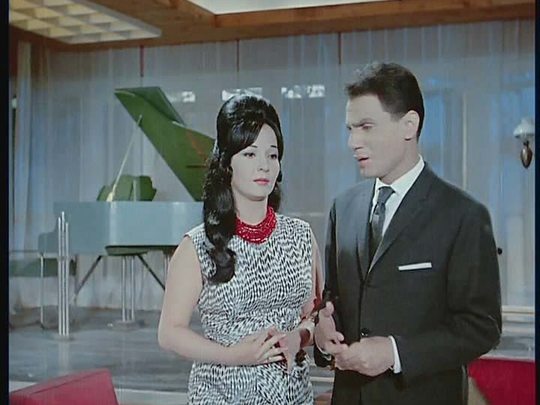
Cairo: Hundreds of Egyptians on Wednesday bade farewell to iconic singer and actress Shadia, who died the day before aged 86.
A coffin containing her body and draped in the Egyptian flag was brought into the main mosque of Al Sayeda Nafisa in Cairo where mourners performed a special funeral prayer for her. She was later buried in her family’s graveyard in Al Basateen in south Cairo.
Born Fatima Ahmed Chaker in Cairo in 1931, Shadia pursued an eventful singing and acting career since she was a teenager.
She left behind an inspiring legacy including hundreds of love and patriotic songs. Her popular song “Oh My Beloved Egypt” became a quasi-national anthem during the 2011 uprising that forced long-time president Hosni Mubarak to resign.
Shadia appeared in 120 films, several of them are regarded among Egyptian classics including “A Sense of Fear”; “The Midaq’s Alley”; “The Thief and the Dogs”; “The Road”; and “Miramar”—the last four are based on novels by Egypt’s Nobel Laureate Naguib Mahfouz.
The best of her films were produced in the 1960s when she did roles ranging from heavy-weight drama to light comedy.
Shadia’s last film was “Don’t Ask Who I’m” shown in 1984. She had since retired and put on the Islamic headdress hijab. She had rarely been seen in public since then.
Earlier this month, she was taken with a stroke to an army hospital where President Abdul Fattah Al Sissi visited her.
Shadia belongs to a generation of actors, who gave the Egyptian cinema her golden age. She co-starred with leading Arab actors including Ismail Yassin, Rushdi Abaza, Omar Sharif, Farid Al Atrash Emad Hamdi, Shukri Sarhan and Salah Zulfakar.
In 1980, Shadia starred in her only stage play “Ria and Sekina”, a comedy based on a tale of two notorious serial killers in Egypt’s early 20th century. The play was a smashing hit and is frequently run on local television stations.
Culture Minister Helmy Al Namnam paid a tribute to Shadia. “She was versatile. She was a distinguished actress in the cinema and on the stage,” he said in media remarks. “Girls in the 1950s and 60s used to imitate her hair style because she was an icon of beauty.”
Shadia was nicknamed the “people’s idol” after a musical film of the same name teaming her up with Egypt’s lendary singer Abdul Halim Hafez.












